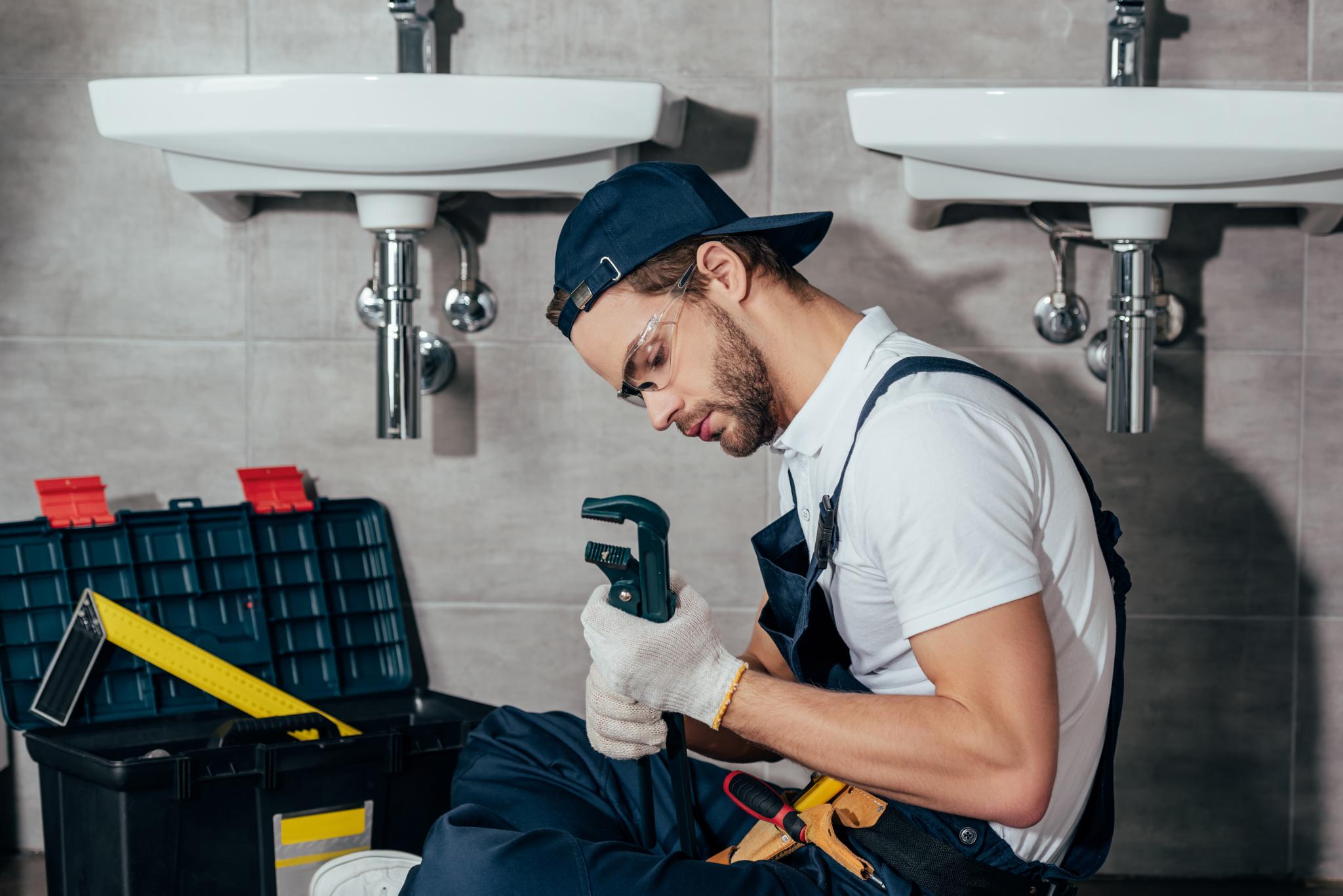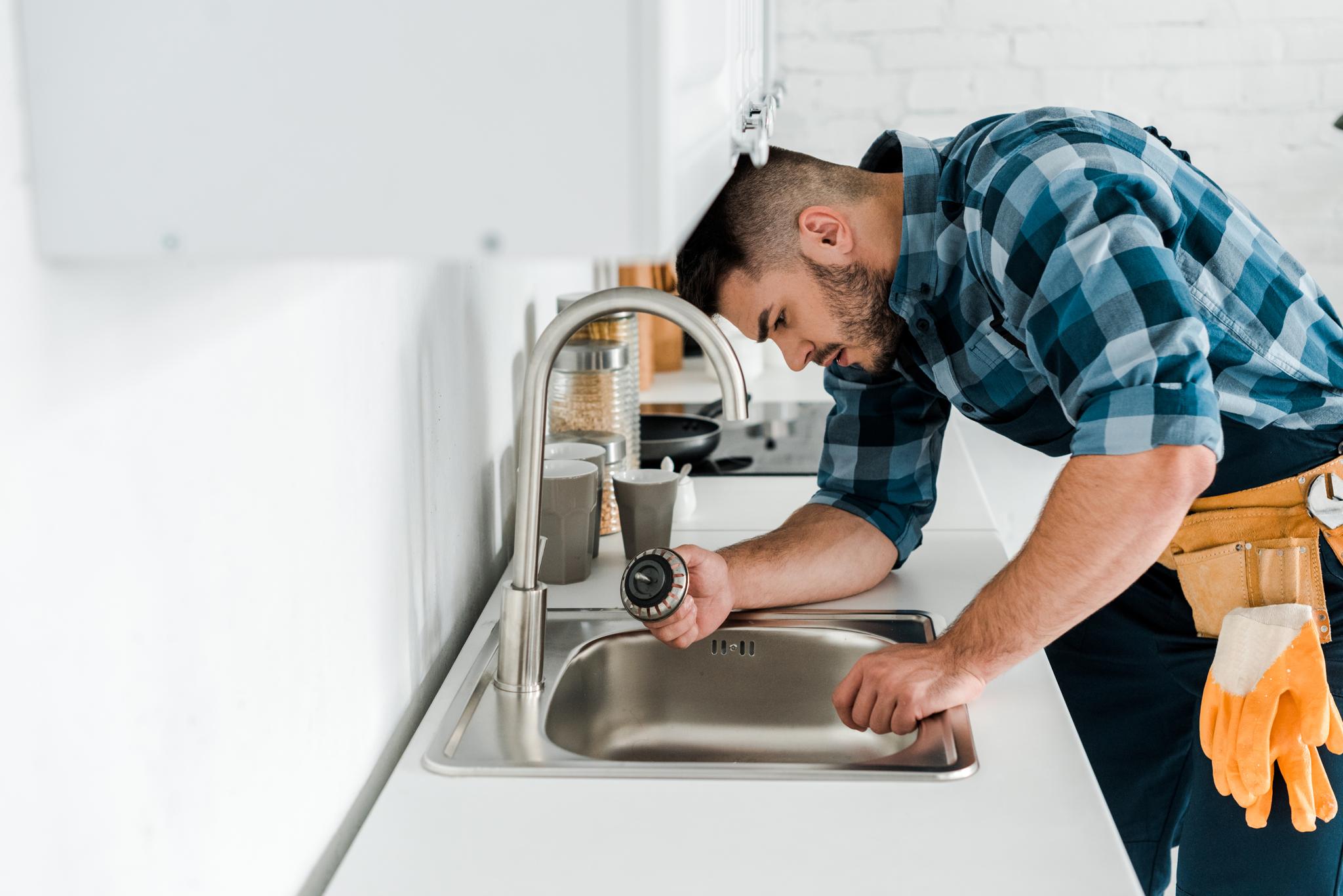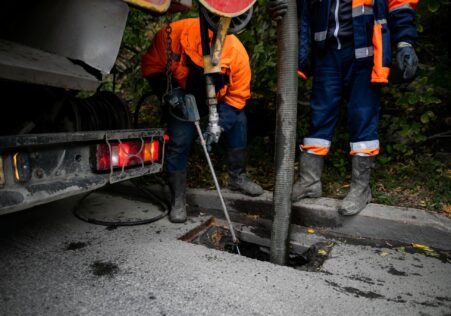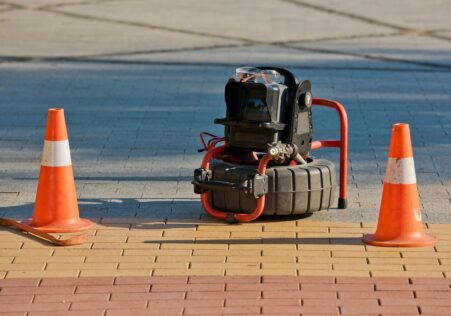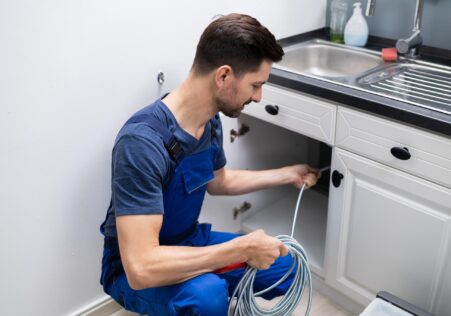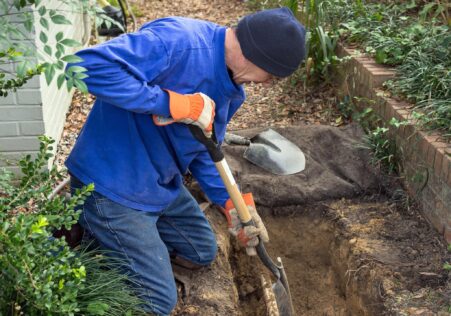What to Do When Your Toilet is Blocked: A Step-by-Step Guide

Toilet blockages can happen at any time and are a common issue for homeowners. They can be unpleasant, messy, and inconvenient, and require immediate attention. But, you don’t necessarily require the plumber immediately. In this blog post we’ll walk you through some simple steps to get your toilet unclogged in no time.
Key Takeaways
- Toilet blockages can be solved with the use of simple tools such as a plunger, baking soda
The Tools You’ll Need
Before we get started it is essential to have these tools in your arsenal:
- Rubber Gloves
- Plunger
- Baking Soda and Vinegar (Optional)
- Hook for the Wire Coat or Pipe Snake (Optional)
Step 1: Close the supply of water valve.
The first step you must do when you encounter a blocked toilet is shutting off water valves in front of the toilet. This is to ensure that there is no further water entering the tank during your work on unclogging it. The valve is typically situated at the bottom of the tank, on one side.
Step 2: Guard yourself by wearing rubber gloves.
Hands must be protected against germs and bacteria present in your toilet bowl with rubber gloves before using any tools that help in unclogging.
Step 3: Use a plunger.
A plunger is undoubtedly the most efficient tool for cleaning toilets that are blocked. Start by pushing down onto the plunger till air is removed from it, then place it in the toilet bowl. Then, start to plunge quickly up and down for approximately 20 seconds. The suction caused through plunging back and forth will remove any blockages.
Tips:
- Use a firm but controlled movement.
- Cover holes around sinks or shower drains if they are close enough to prevent the air from escaping when you plunge.
Step 4: Make a baking soda and vinegar mix.
If you’re not able to get the plunge working Try this method add half a cup of baking soda and a tablespoon of vinegar in the bowl. Let the mixture sit for around 15 minutes. It will begin to bubble but when it ceases to fizz you can pour hot water down (not hot) to eliminate the blockage.
Step 5 5. Use a wire coat hanger or a plumbing snake.
If both plunging and baking soda/vinegar methods have failed to clear the clog, then it’s the right time to utilize an electric coat hanger or plumbing snake. Straighten the coat hanger’s cable until you have a thick, thin wire that has hooks that are bent on one side or it as a plumbing snake. It was designed specifically for clearing drain clogs. Put the tool in the drain hole of your toilet and then twist and turn, push or pull until you feel resistance; that’s where the blockage usually occurs. Make an effort to break any blockages with a back-andforth motion without damaging your pipeline.
Note:
- Never overdo pushing or pulling actions as they could cause more harm.
Step 6: Turn on the water supply, and then check the result.
Once you’ve cleared up any blockages, it is vital to turn on your water valve in your toilet. Then flush it several times to make sure everything flows freely now!
| Tools | Description |
|---|---|
| Rubber Gloves | Hand protection from potential bacteria or germs present in the toilet bowl. |
| Plunger | Most effective tool for clearing up blocked toilets. Press firmly over the hole in your toilet bowl and plunge vigorously up and down for about 20 seconds. |
| Baking Soda and Vinegar | Mixture to use if plunging doesn’t work. Pour half a cup of baking soda and one cup of vinegar into the toilet bowl. Let this mixture settle for about 15 minutes, then pour hot water down (not boiling) to flush out the blockage. |
| Wire Coat Hanger or Plumbing Snake | Tools to use if both plunging and baking soda/vinegar methods have failed. Straighten the wire coat hanger until you have a long thin wire with a hook bent at one end or use the plumbing snake, which is designed specifically for clearing drain clogs. |
Common Questions and Answers
What can I do to tell whether my toilet is clogged?
Some of the more common indications of a toilet that is blocked is when water rises to the top after flushing. You may also notice that the water drains slowly, or you might hear the sound of gurgling directly from your toilet.
What should I do if the toilet is blocked?
If you suspect that the toilet is blocked, avoid trying to flush it over again since this could result in flooding. Instead, turn off water flow to the valve that is behind the toilet, and employ a plunger to try and remove any blockages. If that doesn’t work contact Adelaide Blocked Drains Plumbing for professional help.
Can I stop my toilet from becoming blocked?
Yes! There are numerous ways to avoid your toilet being blocked. This includes avoiding flushing non-degradable items such as the sanitary products, wet wipes or cotton wool down the toilet. Also, avoid using oil or grease in the sink as it will cause it to solidify and block pipes.
What is the best time to call a professional plumber for the problem of a toilet that is blocked?
If you’ve tried to flush the toilet, but it won’t unblock or you suspect there’s a bigger issue with your plumbing system that’s causing frequent blockages, you need to call in a professional plumber like Adelaide Blocked Drains Plumbing . We have years of experience tackling various plumbing issues and are able to quickly identify and address any issues with minimal impact on your property.
When should I schedule my drains cleared?
It is recommended to have the drains cleaned out by professionals like Adelaide Blocked Drains Plumbing every 1-2 years. This will help prevent blockages and help keep your plumbing system in good working order. If, however, you often encounter blockages in your drains or slow draining water, despite making sure you are taking steps to prevent clogging the drains, then annual cleaning could be beneficial.
These methods are relatively easy to execute in the majority of cases, and these items are available in households. When facing blocked toilets before getting anxious after trying all the methods, contact Adelaide Blocked Drains Plumbing ‘s expert plumbers located in Adelaide , if you’re looking for professional assistance with problems with your blocked toilets.
Additional Information
- The Importance of CCTV Drain Inspection in Commercial Properties
- The Importance of CCTV Drain Inspections in Preventing Expensive Property Damage
- The Advantage of CCTV Drain Inspection in Detecting Root Infiltration Early
- Say Goodbye to Frequent Clogging: Reasons to Invest in Pipe Relining Services
- Don't Let Your Blocked Drains Cause You Trouble
- DIY Tips for Unclogging Your Shower Drain Without Harsh Chemicals
- Saving Time and Money with CCTV Drain Inspection for Drain Clearing
- Is It Time for a CCTV Drain Inspection? Here's What You Need to Know
- The Benefits of CCTV Drain Inspection: Beyond Unclogging Pipes
- Why Condo Complexes are Switching to Trenchless Pipe Relining Methods


